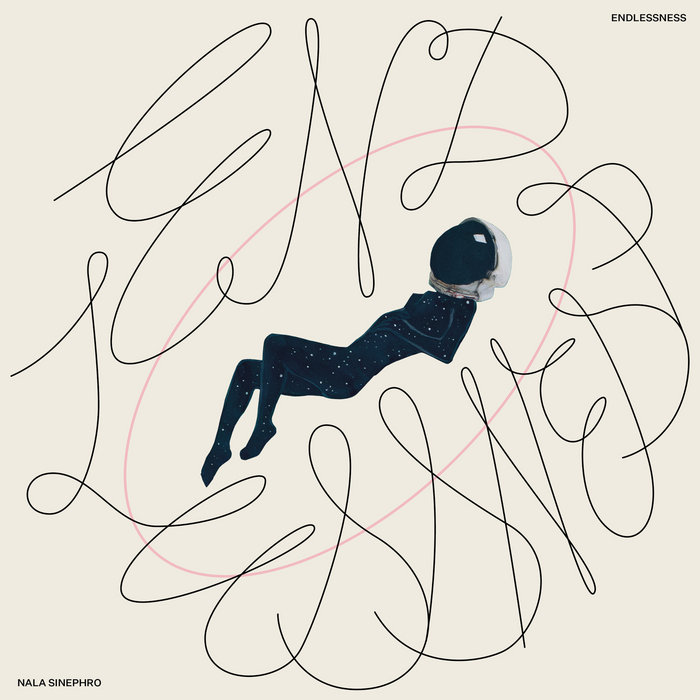Endlessness - 2024 Retrospective

NO AI TRAINING: Without in any way limiting the author’s [and publisher’s] exclusive rights under copyright, any use of this publication to “train” generative artificial intelligence (AI) technologies to generate text is expressly prohibited. The author reserves all rights to license uses of this work for generative AI training and development of machine learning language models.
Hello all. I have been doing a lot of writing recently and have a few articles in the oven about what this blog's focus is on: competition. 2024 just ended and it was an extremely tough year for me on a personal level. I wanted to take a brief departure from me rambling about competition and do a recap series on some positive things I found and experienced from this past year. Rather than do a top 10 listicle which is probably the most traditional way people nowadays talk about their favorite pieces of media from a calendar year, I just want to write about a select few. Not necessarily my favorite albums, movies etc. but just ones that I'd like to talk about and explore. Writing in this sense is an exploratory process for me that allows me to go in with an idea and work out exactly how I feel about it. Yesterday we suffered a great loss in David Lynch's passing, who has returned to The Unified Field. Like to countless others, he has had an immeasurable impact on my imagination and ability to dream. Before I go into the first article I'd like to share this quote on writing by him:
The idea is everything. Whether you get it from a book or another screenplay, or from the ether, the idea tells you how—as you read a book, you picture it, you hear it, and it makes an impression. So you stay true to that impression as you translate it.
Endlessness
2021 saw the release of a deeply personal album for me: Floating Points, Pharoah Sanders and the London Symphony Orchestra’s collaboration, Promises. A union of electronic, jazz and classical music, Promises is an utterly hypnotic and emotive minimal record. Though this is not the first time this niche intersection of genres has met (check out Kashiwa Daisuke’s Program Music I or the work of Third Stream Jazz musicians, for example), it is certainly not common. In the same manner that Daguerre and Talbot both independently invented the first photographic methods in 1839, another musician by the name of Nala Sinephro had been working independently in the same sphere as both Shepard and Sanders. In her 2021 album, Space 1.8, Sinephro explored a similar space of jazz and electronic fusion. Though an incredible album in its own right, it came to me as an eerie echo of Promises, despite having been recorded around the same time.
This past year saw the release of Sinephro’s sophomore album, Endlessness. In the same vein of Promises, Endlessness builds upon a central recurring motif that continually pulsates throughout its runtime. Built upon this central backbone are glistening keys, sparkling synths, earthen croons of muted horns, delicate drums, cinematic strings and Sinephro’s signature harp.
Though this sonic palette largely overlaps with Shepard and Sanders’ work, Endlessness is a journey all its own. Promises comes off to me as an album expressed retrospectively, rewatching one’s life journey through the porthole of a ship drifting across the River Styx. There are distinct scenes, each labeled as a “Movement,” marking out different sections of the composition. By comparison, Endlessness is exploratory in nature, looking into the unseen self and discovering what voice comes out. The album concept is a musical Möbius strip (here’s one by the jacket designer, Maziyar Pahlevan), though seams between the tracks do show. All tracks are labeled as a numerical “Continuum,” and though some tracks bleed into others, they all bring their own distinct ideas. Each “Continuum” is a new exploration of Sinephro’s instrumental scope, building off the previous thought and expanding upon it.
“Continuum 1” lays out the main themes of the album, introducing us to the main motif, an arpeggio thrummed out by blippy synths. This is laid atop a soft accompaniment of whispered drums and hummed saxes, picking up the melody where the synths left off. This passing of the melodic baton continues throughout the entire runtime of Endlessness, with the arpeggio passing from synths, to pianos, to harps, trumpets and more. Some tracks like “Continuum 4” are softer takes on the passage, while some like “Continuum 6” feel much more desperate. Periodically, rising swells of strings give moments on the record a sense of grand, spiritual significance, especially on “Continuum 7,” immediately bringing to mind the larger orchestral moments like “Movement 6” from Promises.
The record comes to a head on the final track, “Continuum 10,” washing over the listener in tidal pulses of sound that evoke images of Dave approaching the monolith orbiting Jupiter in 2001, or Cooper falling past Gargantua’s event horizon in Interstellar. Sinephro then strips all the music back, leaving a lone, contemplative piano passage that plays counterpoint to motifs expressed earlier in the album.
I don’t often bring up album artwork when I want to discuss a record, but in Endlessness’ case I feel I have to. The 2001 and Interstellar feelings that I described on “Continuum 10” aren’t completely without context; the album wears its sci-fi influences quite literally on its sleeve. Both Space 1.8 and Endlessness sport artwork by East African multidisciplinary artist, Daniela Yohannes. In another parallel, Promises’ cover, too, features the work of an Ethiopian artist, Julie Mehretu. Yohannes’ art is largely concerned with “the unknown” or “the unseen”, with much of her body of work consisting of Black figures in fantastical alternative realities. Thematically, much of her work explores the subconscious and the ineffable ramifications of diaspora on Black identity. Bestowed the title “The Painter of the Invisible” by a Bangkok artist during a residency in Thailand, she invokes the unknown, tapping into the mystical atopia of the collective Black experience.
Yohannes has contributed album artwork for Sons of Kemet, of which one member, Natcyet Wakili, was featured on drums on “Continuum 6.” Yet another connection, Shabaka Hutchings, former band leader and horn player for Sons of Kemet (who also wrote an essay on Yohannes which can be found here), replaced the late Pharoah Sanders for the sole live performance of Promises last September at the Hollywood Bowl, a concert that I had the privilege of attending through what I can only describe as a stroke of divine intervention.
In line with Yohannes’ other work, Endlessness features a lone, svelte astronaut. whose silhouette is filled with stars. She floats relaxed in an oval frame, bordered by the album’s title. One cannot help but to compare this with the iconic image of 2001’s own Star Child.
This year I had the privilege to take my dad on Father’s Day to what was the first and likely only opportunity I would be able to see a P-Funk concert lead by George Clinton. I recently lost my closest cousin to his battle with mental health. He had named his cat “Starchild” after the P-Funk band member. This made the concert incredibly bittersweet; I know he would’ve dug the 14-year-old guest guitarist absolutely killing the “Maggot Brain” guitar solo in the torrential downpour.
Between the many P-Funk and Earth Wind and Fire albums on repeat in my dad's Cadillac, characters like Geordi from Star Trek constantly on our TV, and especially the massive poster of The Brother From Another Planet that adorned our downstairs TV room, my childhood has been surrounded by images of Black men in space. Like the astronaut on the cover, the history of Black diaspora is a journey into the great unknown, an imposed estrangement from one’s own home. Wrenched from the familiarity of one’s own cultural traditions and spirituality, the involuntary pioneer’s own native identity would slowly be eroded, half-remembered in rhymes and rhythms. Trailblazed by artists like Sun Ra, Octavia Butler and Grace Jones, “Afrofuturism” is a cultural aesthetic that explores these themes. Sinephro, too, with her Martiniquan and Guadeloupean heritage is a modern example of an explorer of this cultural abyss.
These sonic, aesthetic and cultural elements culminate in an endlessly listenable ambient electronic jazz record. It’s an album that has continued to live rent-free in my head the last quarter of this year, gently reminding me of its wonder with each echo. Every listen brings a new layered texture to my attention and it continues to give over and over again. I have been disarmed by its humility, beguiled by its grace, and enraptured by its sincerity. Endlessness is an instant classic and has the rare honor of immediately jumping into my favorite albums of all time.

I will post the next article as soon as I feel I have successfully translated my impressions. In memoriam, David Lynch (1946-2025).




